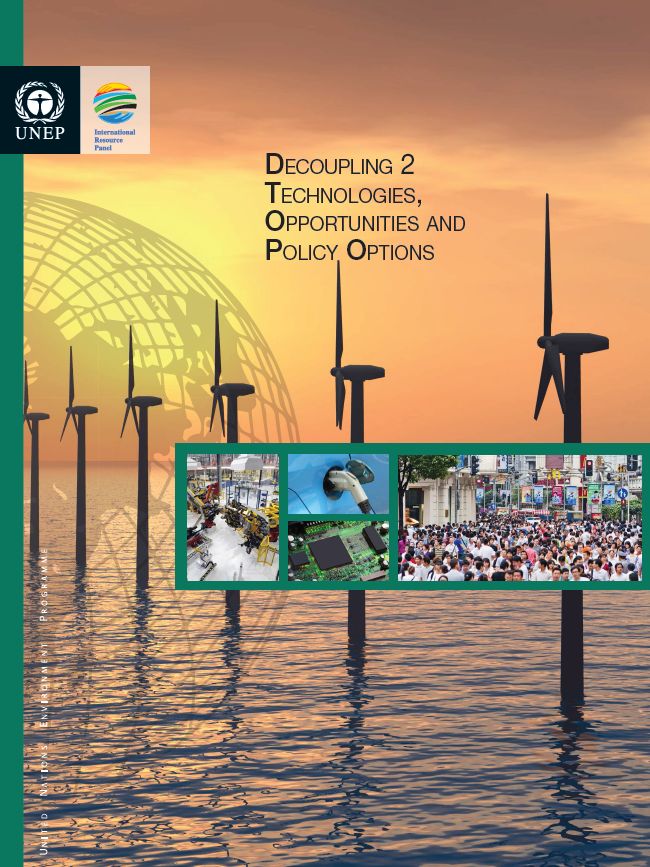Decoupling 2: Technologies, Opportunities and Policy Options
- Publication
- Citation
UNEP (2014) Decoupling 2: technologies, opportunities and policy options. A Report of the Working Group on Decoupling to the International Resource Panel. von Weizsäcker, E.U., de Larderel, J, Hargroves, K., Hudson, C., Smith, M., Rodrigues, M.
It is possible for countries to pursue their development strategies while significantly reducing their resource footprint and negative impacts on the environment. This can take place through 'decoupling' of well-being or economic growth from resource use and environmental impact, through resource productivity increases. Many decoupling technologies and techniques that deliver resource productivity increases as high as 5 to 10-fold are already available.
This report shows that much of the policy design "know-how" needed to achieve decoupling is present in terms of legislation, incentive systems, and institutional reform is also present. Many countries have tried these out with tangible results, encouraging others to study and where appropriate replicate and scale up such practices and successes.
This report explores technological possibilities and policy opportunities for developing and developed countries to accelerate decoupling, so provides a guide to readers on where and how to reap the environmental and economic benefits of increased resource productivity.




